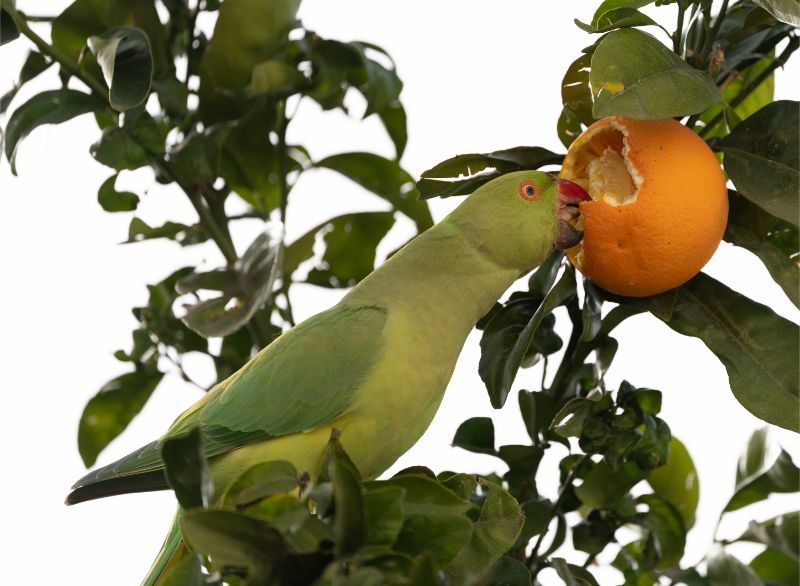
Feeding your bird right can make a huge difference in their health and happiness. Of course, most birds don’t come with an instruction manual to tell you what and when to feed.
Good thing Shiloh Veterinary Hospital is here to help you decode the best practices of a healthy avian diet!
Bird Breakfast Basics
In the wild, different birds have evolved to thrive on different diets. Some are carnivorous (think vultures), dine on insects, prefer grains, nosh on nectar, or even fish for their food.
There are some avian diet basics, though, that are important for pet bird owners to understand.
- All birds need fresh, clean water
- Bird nutritional needs vary from species to species, so understanding your individual pet species is important
- Food is a source of stimulation, both mental and physical, and mimicking normal foraging behavior is ideal
- Monitoring food intake can help us to identify when something is amiss
- Understanding which foods are treats and which are dietary staples is important
Avian Diet Types
In general we can classify the diet an individual bird species requires into a few categories.
Florivore — These birds, which include the Military, blue and gold macaws, and the red-faced parrot, eat a diet of seeds, fruits, nuts, barks, and berries
Frugivore — Frugivores like the blue-throated and green-winged macaw prefer mostly fruit and flowers
Granivore — These birds, such as the budgerigar and cockatiel, require grains and seeds in their diets
Nectarivore — Lorikeets and lories eat nectar, pollen, insects, and seeds
Omnivore — Other bird species like the sulphur-crested cockatoo and red-tailed Amazon incorporate insects and other invertebrates into their seed and fruit diets
We can’t always mimic the exact diet a bird in the wild might eat, and sometimes this is a good thing. Wild birds expend much more energy flying and foraging, so the less energy-dense offerings we tend to feed are often ideal to maintain a healthy body weight.
Most pet birds benefit from eating a formulated diet in addition to species-appropriate seeds, fruits, vegetables, and nuts. This helps to provide a balanced avian diet as birds will tend to overindulge on their favorites if allowed (who doesn’t?). This is why premade seed mixtures are often not ideal.
For most pet bird species, a formulated pelleted diet should make up about three-quarters of their daily intake. The remainder should be mostly vegetables. A variety of safe produce offerings can help to keep your bird stimulated and engaged. Offer more natural foraging situations such as hanging or hiding food.
The avian diet can be quite varied from species to species and day to day. It is important to understand your goals for your individual pet in order to avoid nutritional excesses and deficiencies. Please call us for advice on how to feed your bird. We are here to be your partners in pet care, and it is important to us to educate you on good care for all your critters.
